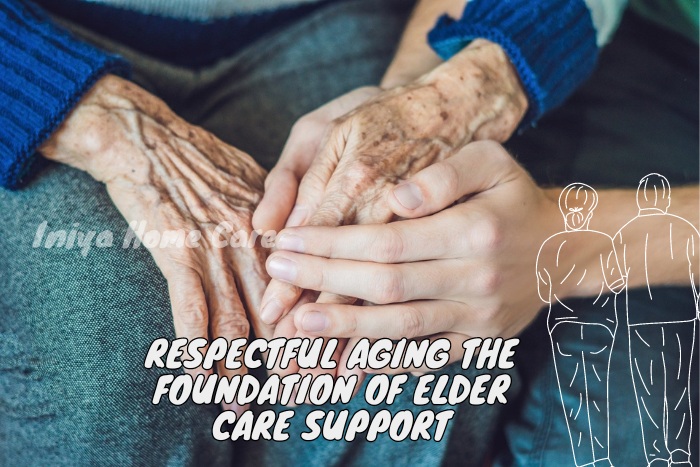The topic of deferential vulnerability often arises in discussions about the relationship dynamics between individuals in positions of power and those who are more vulnerable. Deferential vulnerability refers to a situation where a person’s vulnerability can lead them to defer decisions or responsibilities to someone they perceive as more authoritative or knowledgeable. While this concept can apply to various groups, it is particularly relevant in the context of elderly care. The elderly often find themselves in situations where their physical, mental, or emotional vulnerabilities influence their decision-making processes, especially regarding health care and living arrangements.
What is deferential vulnerability?
Deferential vulnerability occurs when an individual’s inherent vulnerabilities—such as age, health status, or life experience—lead them to rely heavily on others for guidance and decisions. This can create an environment where the vulnerable party may not actively engage in discussions that significantly impact their lives, leading to potential exploitation or neglect.
The Role of Deferential Vulnerability in Elderly Care
As people age, numerous factors contribute to a decline in physical and cognitive abilities. Chronic illnesses, mobility issues, and cognitive decline can make elderly individuals more reliant on family members, caregivers, or healthcare professionals. This reliance can manifest in various ways:
- Health Care Decisions: Elderly individuals may defer to medical professionals when making decisions about their treatment plans. Factors such as fear of hospitalization, confusion about medical jargon, or a lack of understanding about their conditions can lead to passive decision-making.
- Living Arrangements: Many elderly individuals struggle with the decision of whether to age in place or move to an assisted living facility. Family members often influence this choice, and the elderly person may feel pressured to agree with relatives’ suggestions, even if they have different preferences.
- Financial Decisions: The financial landscape for the elderly can be complicated. Many older adults rely on family members or financial advisors for decisions regarding investments, savings, and spending. This reliance can lead to situations where their interests are not prioritized.
Case Study: Navigating Health Care Decisions
Consider the case of Mrs. Thompson, a 78-year-old widow diagnosed with early-stage Alzheimer’s disease. She often feels overwhelmed during medical appointments and struggles to understand the implications of her condition and treatment options. Here’s how deferential vulnerability plays a role in her healthcare:
- Overwhelmed by Complexity: During a visit to her neurologist, Mrs. Thompson encounters complex medical jargon and explanations about medications. Due to her cognitive challenges, she finds it difficult to engage actively in her treatment decisions.
- Reliance on Family: Mrs. Thompson defers to her daughter, who has taken an active role in her care. While her daughter has good intentions, she may prioritize her preferences over Mrs. Thompson’s wishes, which may not reflect her mother’s true desires.
- Potential Consequences: This reliance may lead to decisions that Mrs. Thompson would not have made independently, such as opting for a medication with significant side effects, simply because she trusts her daughter’s judgment.
The Legal Landscape
In legal terms, the concept of deferential vulnerability connects closely to issues of consent and guardianship. When assessing an elderly person’s ability to make informed decisions, courts typically consider their cognitive capacity. If individuals are deemed unable to make sound decisions due to cognitive decline, guardianship arrangements may be established.
Table 1: Key Factors Influencing Decision-Making Capacities in Elderly Individuals
| Factor | Description |
|---|---|
| Cognitive Ability | Ability to understand and process information |
| Emotional State | Mental health and emotional stability |
| Physical Health | Impairments that may affect mobility or communication |
| Support System | Presence of family or caregivers influencing decisions |
| Knowledge of Options | Awareness of available choices and their implications |
Strategies to Address Deferential Vulnerability
Recognizing and addressing deferential vulnerability among the elderly is crucial for ensuring that their voices are heard and respected in decision-making processes. Some effective strategies include:
- Enhanced Communication: Healthcare providers should simplify medical information and actively encourage questions. Using visuals or analogies can help elderly patients better understand their options.
- Advance Directives: Encouraging elderly individuals to create living wills or advance care plans ensures that their preferences are noted and respected, even if they cannot communicate them later.
- Advocacy: Family members and caregivers should advocate for the elderly individual’s wishes and provide support without overshadowing their autonomy. This approach helps balance care while respecting personal agency.
Industry Impact and Support Resources
Organizations and support groups play an essential role in advocating for seniors facing deferential vulnerability. They provide resources, education, and legal support to empower elderly individuals to make informed decisions.
Table 2: Resources for Elderly Advocacy and Support
| Organization | Focus Area |
|---|---|
| National Institute on Aging | Research and educational resources for senior care |
| AARP | Advocacy for the elderly on various issues |
| Alzheimer’s Association | Support for families and individuals with dementia |
| Legal Aid Society | Free legal assistance for low-income seniors |
Conclusion: Building Empowering Environments
Addressing the issues surrounding deferential vulnerability in elderly care is vital for fostering environments where seniors can express their desires and make informed choices. Strong communication and advocacy ensure that the elderly are not only heard but also actively engaged in decisions regarding their health and welfare. By combining medical support with legal safeguards and family empowerment, society can work toward a more inclusive approach that respects and uplifts our aging population.
As the elderly continue to navigate an array of decisions that shape their lives, understanding their vulnerabilities—alongside creating pathways for proactive decision-making—will significantly enhance their quality of life and autonomy in their golden years.
